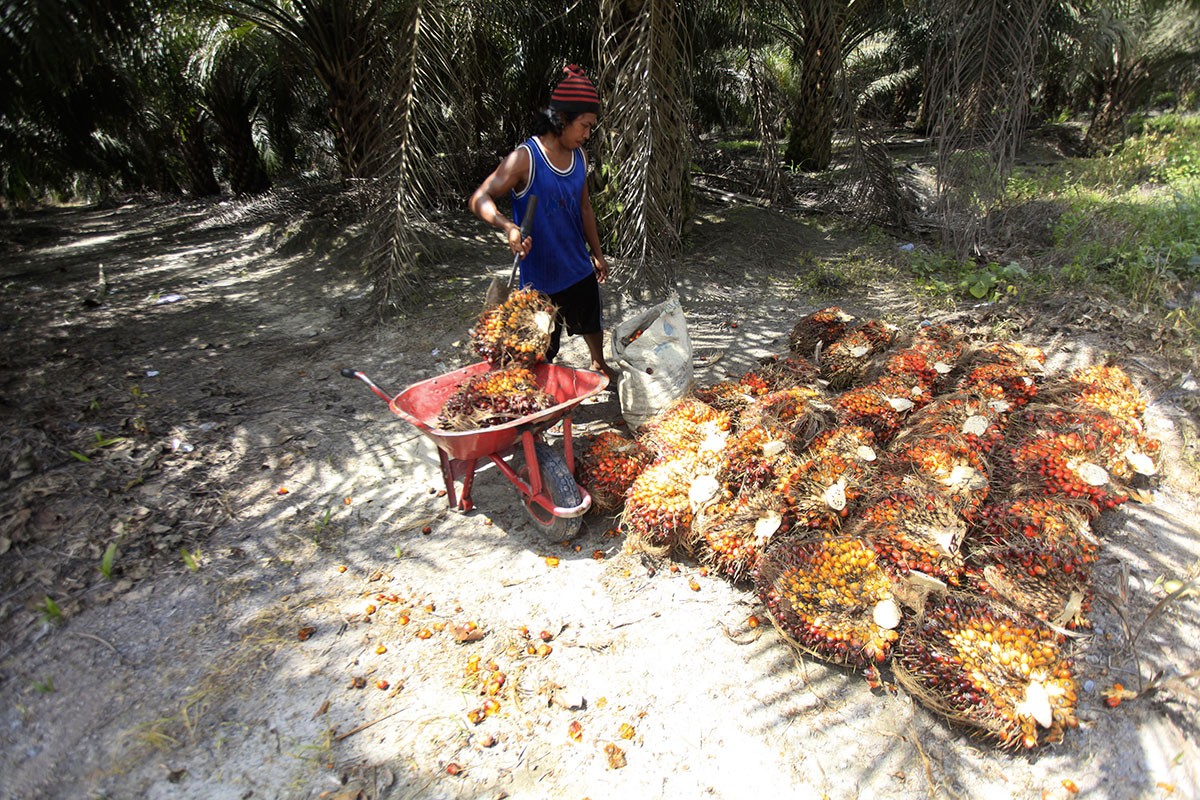Popular Reads
Top Results
Can't find what you're looking for?
View all search resultsPopular Reads
Top Results
Can't find what you're looking for?
View all search resultsPalm oil refineries may be 'clustered' to aid electricity production
Change text size
Gift Premium Articles
to Anyone
The government is considering to group together palm oil refineries to make it easier to use palm oil waste to fuel power plants.
Even though palm oil waste is expected to fuel a big part of the generation of 32 gigawatts (GW) of electricity that is supposed to come from renewable sources, the small size of plantations and refineries has made it difficult to procure sufficient oil from one source, said the Energy and Mineral Resources Ministry's new and renewable energy director general, Rida Mulyana.
"We are currently studying the possibility of using a cluster system. So we may group six refineries in one cluster and transmit the waste to PLN together," he said during a seminar held by the Indonesian Employers Association (Apindo) on Friday.
(Read also: Powerful lobby sought to ease Indonesia palm oil exports)
Data from the ministry shows that there is a potential to generate 12.5 GW of electricity from palm oil waste.
However, the most recent electricity procurement business plan (RUPTL) by state-owned electricity firm PLN shows that only 488 MW worth of biomass and biogas power plants will be developed by 2025.
The ministry itself has also recently issued a ministerial decree intended to increase investors' interest in developing renewable energy sources, including biomass and biogas, in the country.
Ministerial Decree No. 12/2017 on renewable sources for electricity procurement places a cap on electricity rates from renewables to 85 percent of the local electricity supply costs (BPP) if it is higher than the national average. This applies to all renewables except for geothermal and waste-to-energy plants. (bbn)










